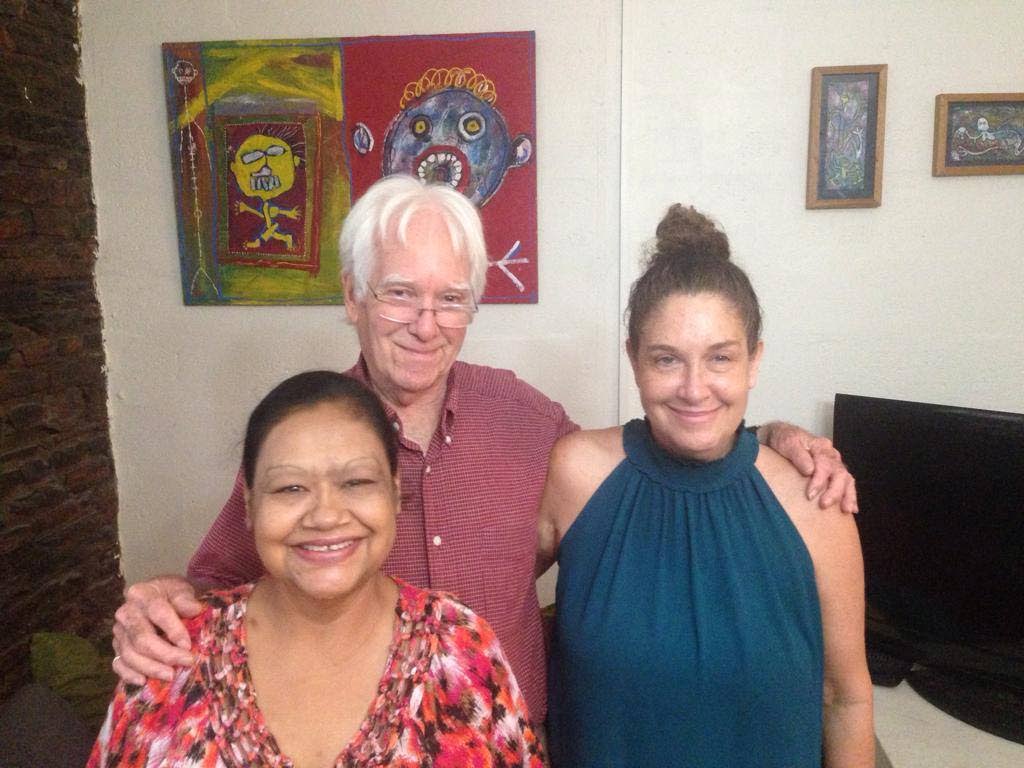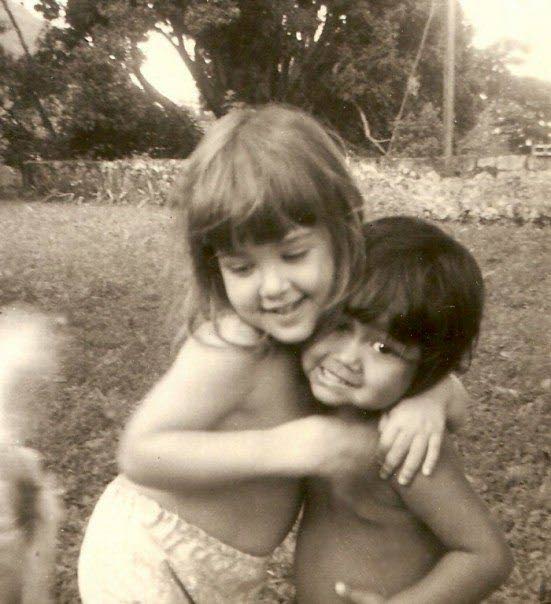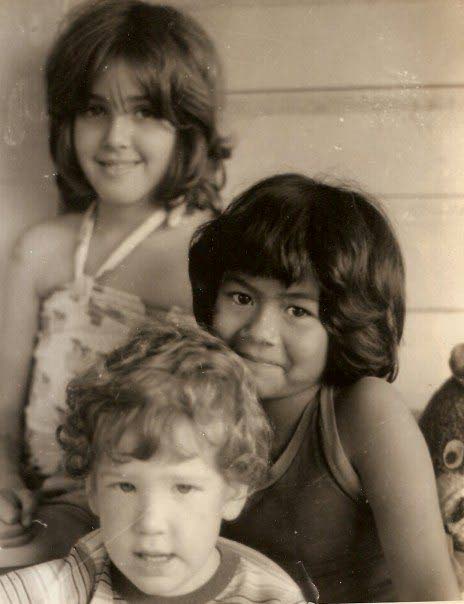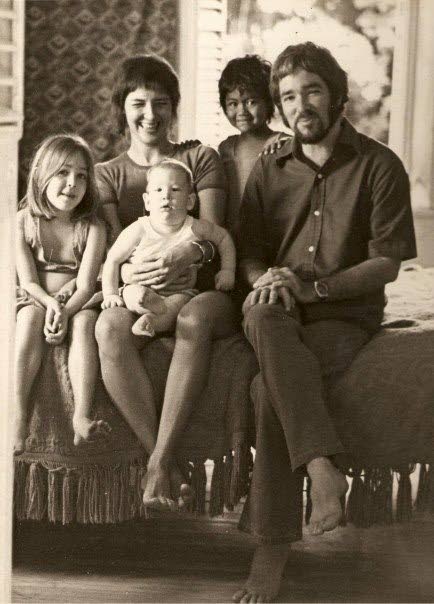Kirsten’s Kalinago calling

This is part two of Beyond Blood stories of adoption series.
KIRSTEN MACLEAN yearns a sense of belonging. As a baby, she was given up by her mother, an indigenous woman who could not care for her. While her adopted family loved her, she felt displaced in a family who did not share the same ways of learning, skin colour or way of being. Her identity, tightly tied up in her Kalinago ancestry still remains a mystery.
Kirsten, a Kalinago baby adopted by a Trinidadian family in the 1960s, told Newsday she struggled to have a sense of belonging with her adopted family, and often felt like an outsider in the only home she knew.
Kalinago is the official name of the First Peoples community of Dominica, previously referred to as Caribs.
Geoffrey MacLean and his wife Karen lived in Dominica from 1968-1974, a time he described as their hippy days. Geoffrey, an architect, was working on a plan to develop the First Peoples community when he heard of a family who needed help. The mother had 14 children and was putting some of them up for adoption.
“In those times, the First People were not respected. One family in particular had a lot of children. Their mother promoted the adoption of the children to different families. Five of my daughter’s siblings were adopted by different families,” he told Newsday in an interview at Medulla Art Gallery, Fitt Street, Woodbrook, on October 25.

-
The MacLean clan welcomed Joan Hazel Benjamin, 18 months, into their family. MacLean and Karen already had a daughter, Sian. The couple renamed the baby Kirsten, and became a family of four.
Geoffrey described Kirsten as fitting right into the family, but noticed his new daughter had a few idiosyncratic differences from Sian.
“One of the things I remember most – she loved working with her hands. I gave her a carving set. She went outside and started using it. She got a broomstick and started hollowing it out. I asked her what she was doing, and she said: ‘I’m making a boat, Daddy.’
“It shook me how strong tribal memory is and how much it is part of us. All of us have tribal memory. I think it’s genetic.”
Carving a canoe was not the only “genetic” trait Geoffrey noticed in his child. Karen, a Montessori teacher, tried to teach Kirsten. However, she would not respond to her “western” style of instruction.
Geoffrey recalled, “She was doing advanced methods in teaching when my daughter joined us, and she found it difficult to teach her.
“In trying to find a way to get my daughter to learn, she approached Douglas Taylor (author of The Caribs of Dominica), who told her that Caribs learnt by observation. Their system was different from ours.”
In 1974 the MacLeans moved back to TT, this time as a family of five, as they welcomed a third child, Dominic. But Kirsten, who only knew the MacLeans as family, still felt like an outsider. Newsday spoke to Kirsten separately on October 28 at Medulla, where she described a deep sense of shame she had to work through because she was adopted.

“At this point in time, it’s okay. Sometimes it mattered, sometimes it did not.
“People don’t really give it a lot of thought, they just adopt a child on a whim...
“But I felt like a sore thumb – a black child in a white family. I always had to answer questions. I was always put on the spot. I had to dodge the questions. I formed certain things in my head to cope with the reality of being adopted.
“I am adopted; that’s it. I dealt with it like that, but I would not tell anyone I was adopted.”
Kirsten said her biological sister, who asked not to be named, was also adopted, but does not talk about that aspect of her life.
“She felt ashamed, and hasn’t told her children that they are Amerindian. She does not encourage them to practise their heritage or know anything about their heritage. Growing up, Daddy always gave me that sense of pride in being special, but I never grasped that I am Amerindian.”
During the time Kirsten spent in Dominica, her father said, she was not too interested in going to the First Peoples community. She was a child and enjoyed playing with her sister in the world she knew.
Kirsten, now a 53-year-old caregiver to the elderly, said she is working towards getting to know her family and heritage.
“As soon as they gave me up for adoption, that part of my life was cut off...There are a lot of things that I don’t know...
“It makes me feel as if some part of me has died... I feel like things were taken away from me.
“But I really would like to learn about my heritage, my culture. I don’t even know how to make a cassava dumpling, and I love dumpling, or a pumpkin bread, or anything. I don’t know any Carib people. I want to go (into the First Peoples community).”
As she is adopted, her medical history is also a mystery to her. She found out her birth mother was diabetic, but that’s as much as she knows about her ancestral wellness. She’s even curious whether her father was part Afro-Dominican, as she sees some African traits in herself.

“I don’t know anything about my medical history, because nothing was passed on to me where my family is concerned...
“I would have liked to have known if my father had black in him. I would like to know if I am full-blooded Amerindian. Certain things would be dead to me.”
Kirsten has started a journey to rediscover her ancestral heritage and has reconnected with some of her biological siblings.
“I recently got to know them. Ben, he lives in England; then there’s David and Matthew. It was a big family. My mother obviously thought that she could not give her children what others could.”
Ten years ago, when she was 43, her quest for her Kalinago heritage began when she returned to Dominica to meet the woman who gave her up, Molly Agatha Benjamin, also known as Amie.
“I was so ecstatic when I got to speak to my mother on her birthday. I just cried immensely. I cried, and for hours after my brother started talking to me. He started telling me about my family and living siblings in Dominica. After we spoke on her 91st birthday – it was December 6 – she died a little afterward.”
Though her mother was only able to say five words in English and Kirsten knew no patois, the two communicated through body language and hand gestures.
“I’ve always wanted to know about my mother. My brother Matthew said I was the only one with the gall to come look for her and find out why I was adopted.
“She spoke to me and when I heard her voice I could have understood why she had the strength to give us up.”
The Kalinago blood calls to Kirsten as she craves to learn more about her ancestors. She has promised herself she will return to Dominica to get in touch with her heritage.
“I am obviously looking to get back to my roots, to my original roots, so hopefully one of these days I will go back to Dominica. There are a lot of memories I have of Dominica and I think to myself, I must have been four or five at that time, and I still have a lot of memories of the place.”
For anyone interested in adopting, Geoffrey and Kirsten have some advice on the process.
Geoffrey saw welcoming another person’s child into his family as no big deal. He would advise anyone who wants to adopt just to do it, taking into consideration that every child, biological or not, will have their idiosyncrasies. They should be understood and accepted as they are and loved unconditionally.
“Go with it. It is no big thing. Children are children. All children have different personalities, different likes and dislikes.”
Kirsten says, “If you are looking at someone you want to adopt, you have to teach them that it’s not shameful to be adopted. You have to teach them that self-worth to be able to go on, because it will be difficult and you have to help them overcome the difficulty.”
When Kirsten contemplates the circumstances which led her mother to give up six children for adoption, she is in awe of her and the strength it took to let her children go.
“I thought to myself, ‘My God, if I could only be half the woman she is, I would accomplish something.’ She had immense strength. She obviously practised her religion. She is strong.”
Though Kirsten longs to know a family she left decades ago, she is still appreciative of the family she grew up with and the love her parents gave her.
“I am very grateful, thanks to my father. He taught me a lot. He obviously gave me something that I have taken into my adult life, and I would not change that for anything. His lifestyle, the people – I would not change that at all. I loved how we grew up scatterbrained and we met all sorts of strange characters...
“Maybe if I was adopted into another family I would not have gotten the lifestyle or the privileges. I would not have become the person I am today.”
Kirsten was unable to have children, but said she would not consider adopting because she does not want to put a child through that experience.
Keep posted to Newsday as we share the story of Ron Julien, a boy abandoned by his biological parents at a stranger’s house and became part of the family.


Comments
"Kirsten’s Kalinago calling"